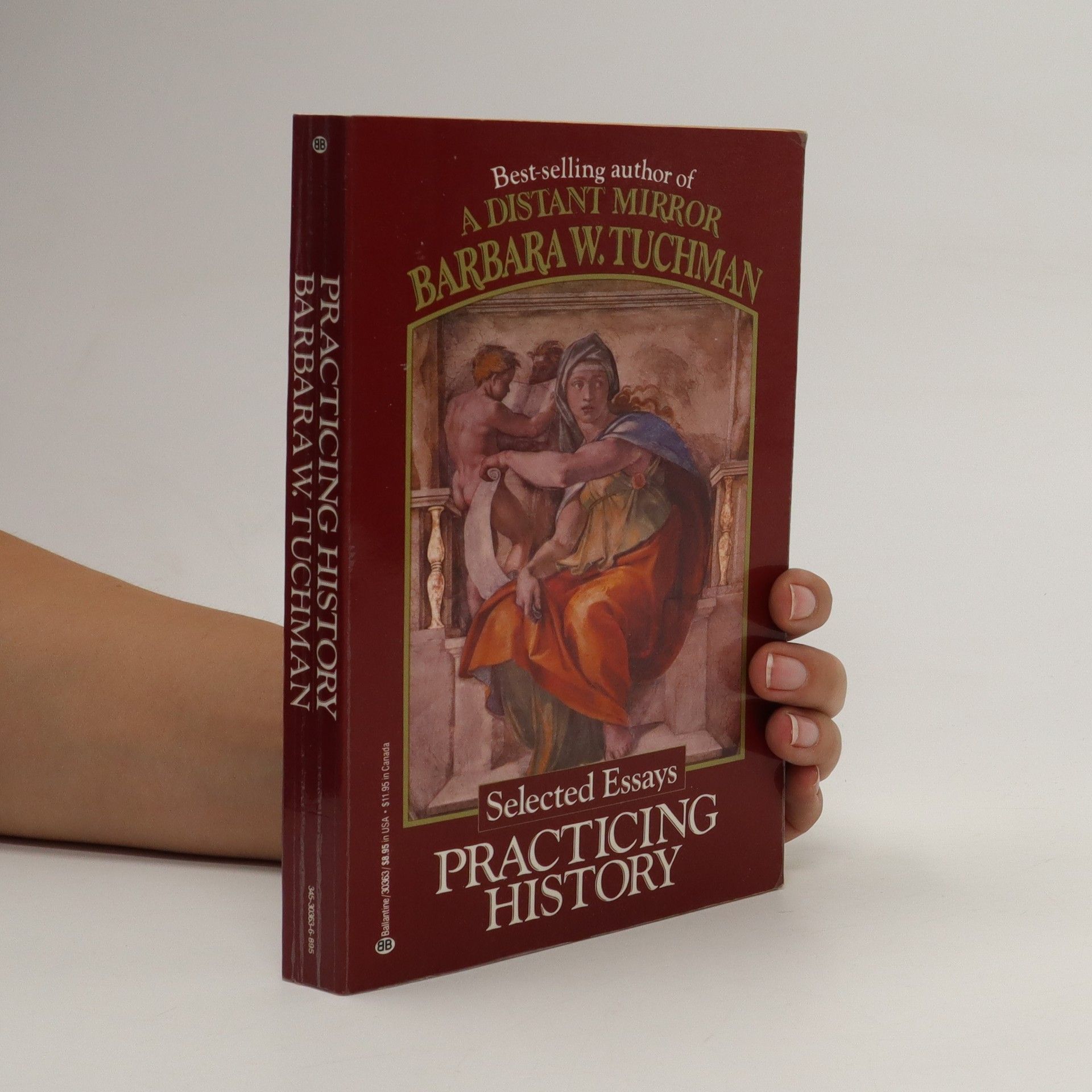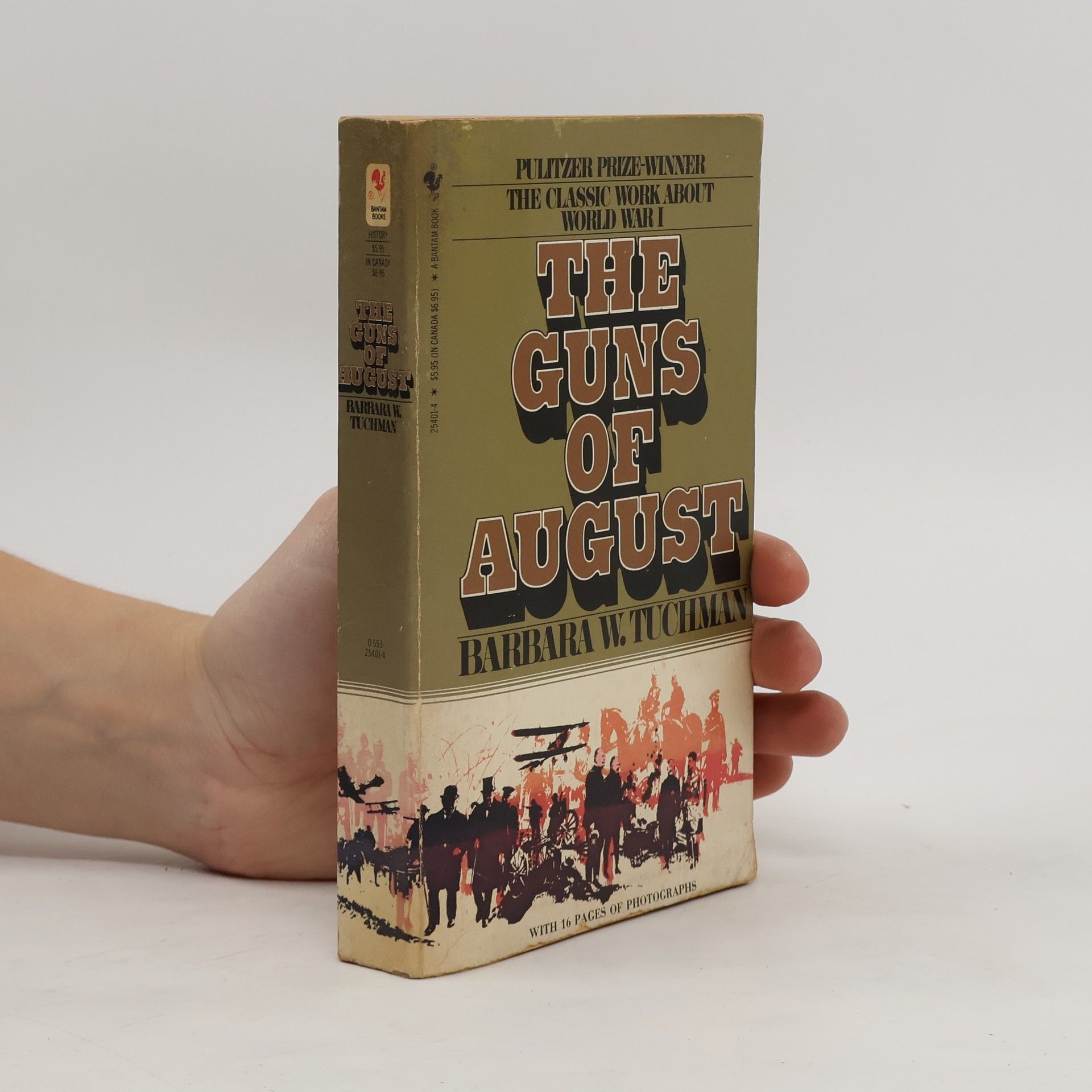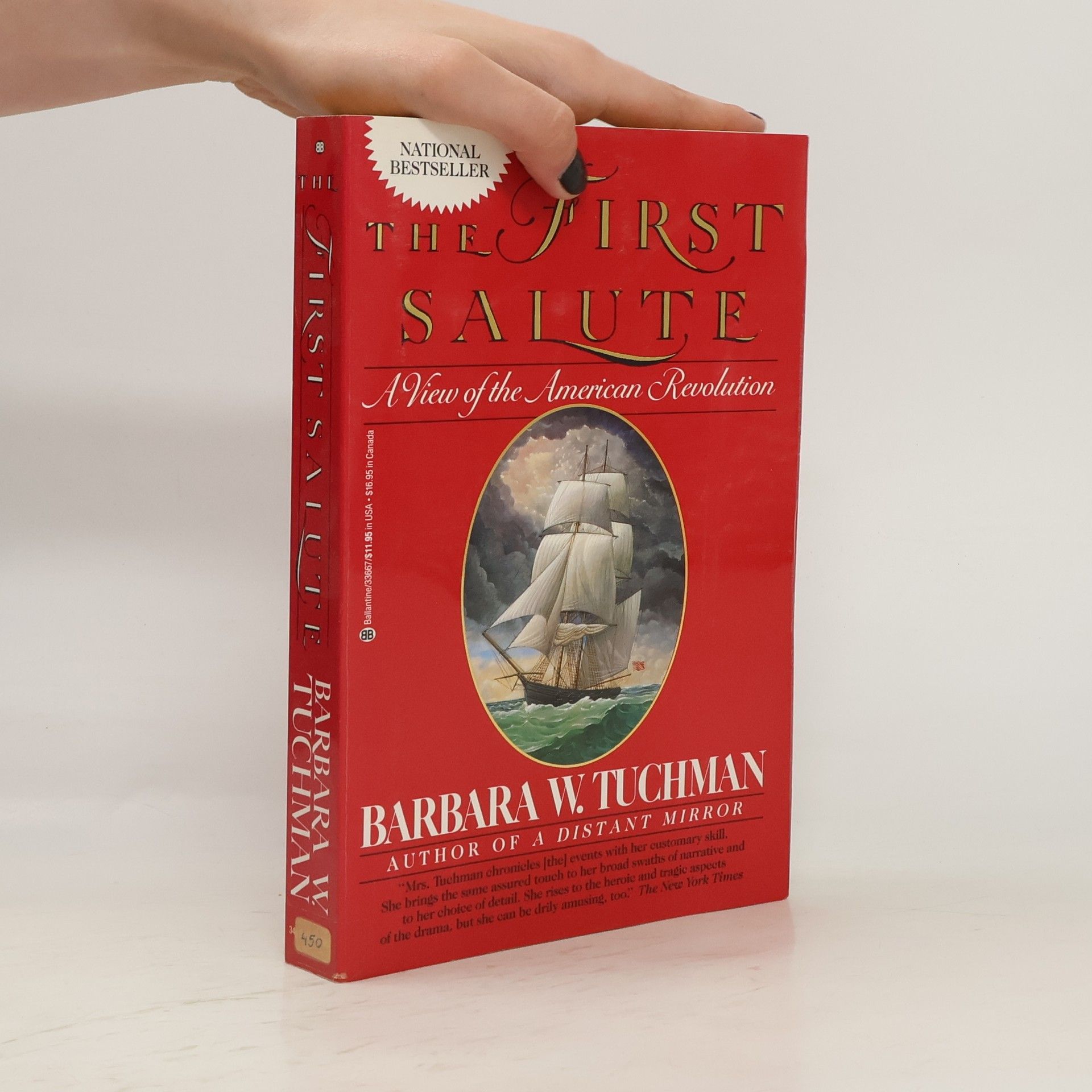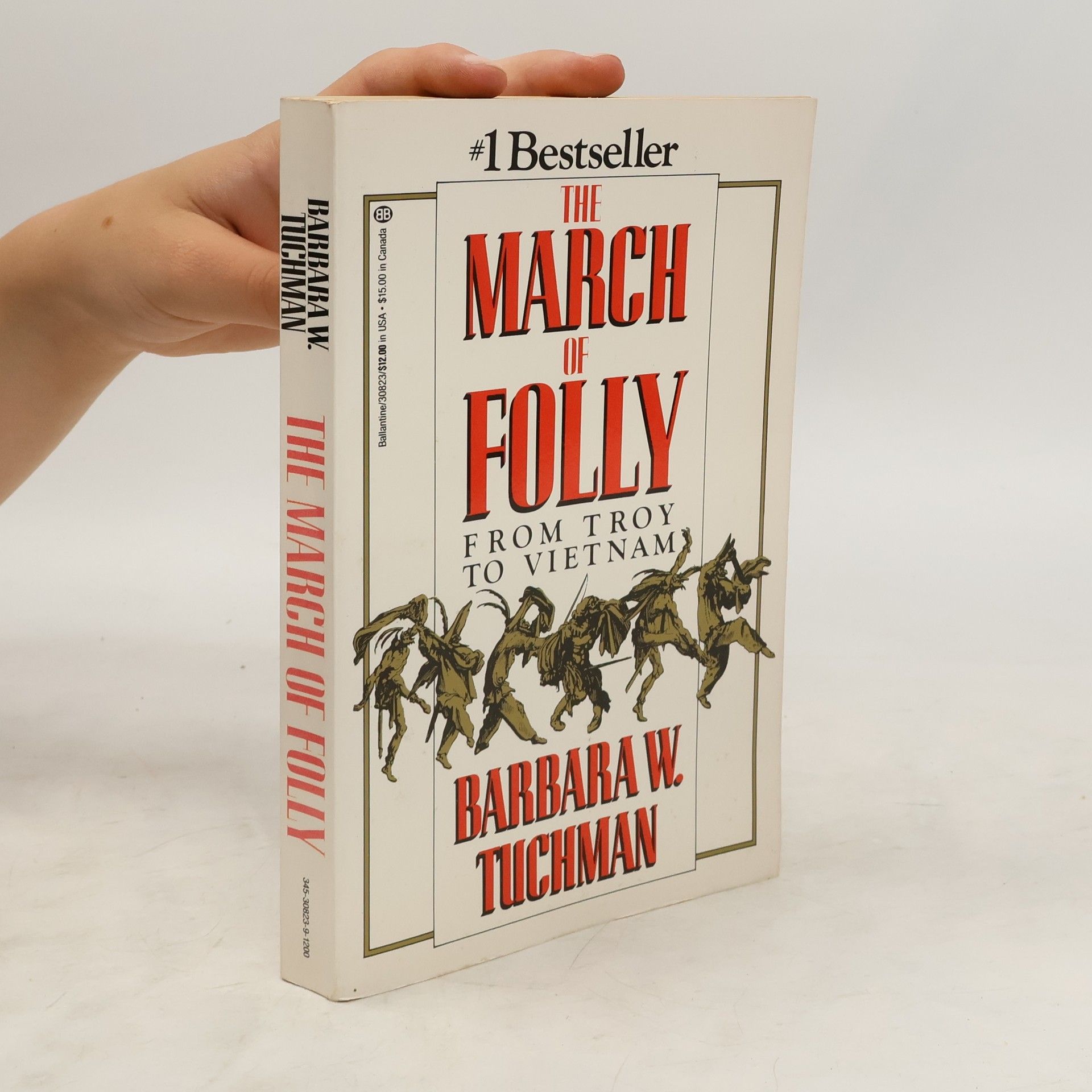The narrative explores the emergence of modern China, offering a unique perspective through the experiences of an exceptional American. Tuchman’s meticulous research and engaging storytelling illuminate the complexities of this transformative period in Chinese history, providing readers with an insightful understanding of the cultural and political shifts that shaped the nation. This Pulitzer Prize-winning work stands out for its depth and clarity, making it a significant contribution to historical literature.
Barbara Wertheim Tuchman Libri
Barbara Wertheim Tuchman è stata una storica e autrice americana autodidatta, vincitrice di due premi Pulitzer. Divenne nota soprattutto per 'The Guns of August' (1962), una storia sul preludio e il primo mese della Prima Guerra Mondiale. Tuchman si concentrò sulla produzione di storia popolare. La sua narrazione chiara e drammatica ha coperto argomenti diversi dal XIV secolo alla Prima Guerra Mondiale, vendendo milioni di copie. Il suo stile è apprezzato per la sua leggibilità e capacità di coinvolgere il lettore.







"The drama of August, 1914, a month of battle in which war was waged on a scale unsurpassed, and whose results determined the shape of the world in which we live today."--Jacket.
During the fateful quarter century leading up to World War I, the climax of a century of rapid, unprecedented change, a privileged few enjoyed Olympian luxury as the underclass was “heaving in its pain, its power, and its hate.” In The Proud Tower , Barbara W. Tuchman brings the era to vivid life: the decline of the Edwardian aristocracy; the Anarchists of Europe and America; Germany and its self-depicted hero, Richard Strauss; Diaghilev’s Russian ballet and Stravinsky’s music; the Dreyfus Affair; the Peace Conferences in The Hague; and the enthusiasm and tragedy of Socialism, epitomized by the assassination of Jean Jaurès on the night the Great War began and an epoch came to a close.
Degas to Matisse the Maurice Wertheim Collection
- 176pagine
- 7 ore di lettura
Bequeathed to the Fogg Art Museum in 1950, a galaxy of impressionst and post-impressionist artists - sculptures as well as drawings and paintings.
Celebrated for bringing a personal touch to history in her Pulitzer Prize–winning epic The Guns of August and other classic books, Barbara W. Tuchman reflects on world events and the historian’s craft in these perceptive, essential essays. From thoughtful pieces on the historian’s role to striking insights into America’s past and present to trenchant observations on the international scene, Barbara W. Tuchman looks at history in a unique way and draws lessons from what she sees. Spanning more than four decades of writing in The New York Times Magazine, The Atlantic, Foreign Affairs, Harper’s, The Nation, and The Saturday Evening Post, Tuchman weighs in on a range of eclectic topics, from Israel and Mao Tse-tung to a Freudian reading of Woodrow Wilson. This is a splendid body of work, the story of a lifetime spent “practicing history.” Praise for Practicing History “Persuades and enthralls . . . I can think of no better primer for the nonexpert who wishes to learn history.”—Chicago Sun-Times “Provocative, consistent, and beautifully readable, an event not to be missed by history buffs.”—Baltimore Sun “A delight to read.”—The New York Times Book Review
The Zimmermann Telegram
- 224pagine
- 8 ore di lettura
“A tremendous tale of hushed and unhushed uproars in the linked fields of war and diplomacy” (The New York Times), from the Pulitzer Prize–winning author of The Guns of August In January 1917, the war in Europe was, at best, a tragic standoff. Britain knew that all was lost unless the United States joined the war, but President Wilson was unshakable in his neutrality. At just this moment, a crack team of British decoders in a quiet office known as Room 40 intercepted a document that would change history. The Zimmermann telegram was a top-secret message to the president of Mexico, inviting him to join Germany and Japan in an invasion of the United States. How Britain managed to inform the American government without revealing that the German codes had been broken makes for an incredible story of espionage and intrigue as only Barbara W. Tuchman could tell it. The Proud Tower, The Guns of August, and The Zimmermann Telegram comprise Barbara W. Tuchman’s classic histories of the First World War era.
A Distant Mirror
- 704pagine
- 25 ore di lettura
The 14th century gives us back two contradictory images: a glittering time of crusades and castles, cathedrals and chivalry, and a dark time of ferocity and spiritual agony, a world plunged into a chaos of war, fear and the Plague. Barbara Tuchman anatomizes the century, revealing both the great rhythms of history and the grain and texture of domestic life as it was lived.
Presents a fresh view of the American Revolution, chronicling key events from 1776 to 1781 and assessing the repercussions for America, England, France, and other nations.
Pulitzer Prize–winning historian Barbara W. Tuchman, author of the World War I masterpiece The Guns of August, grapples with her boldest subject: the pervasive presence, through the ages, of failure, mismanagement, and delusion in government. Drawing on a comprehensive array of examples, from Montezuma’s senseless surrender of his empire in 1520 to Japan’s attack on Pearl Harbor, Barbara W. Tuchman defines folly as the pursuit by government of policies contrary to their own interests, despite the availability of feasible alternatives. In brilliant detail, Tuchman illuminates four decisive turning points in history that illustrate the very heights of folly: the Trojan War, the breakup of the Holy See provoked by the Renaissance popes, the loss of the American colonies by Britain’s George III, and the United States’ own persistent mistakes in Vietnam. Throughout The March of Folly, Tuchman’s incomparable talent for animating the people, places, and events of history is on spectacular display. Praise for The March of Folly “A glittering narrative . . . a moral [book] on the crimes and follies of governments and the misfortunes the governed suffer in consequence.”—The New York Times Book Review “An admirable survey . . . I haven’t read a more relevant book in years.”—John Kenneth Galbraith, The Boston Sunday Globe “A superb chronicle . . . a masterly examination.”—Chicago Sun-Times
The March of Folly
- 559pagine
- 20 ore di lettura
From the distinguished American historian, a consideration of one of the most bizarre and fascinating paradoxes in history - the persistent pursuit by governments of policies contrary to their own interests. It spans 30 centuries, from the fall of Troy to the USA's involvement in Vietnam.



